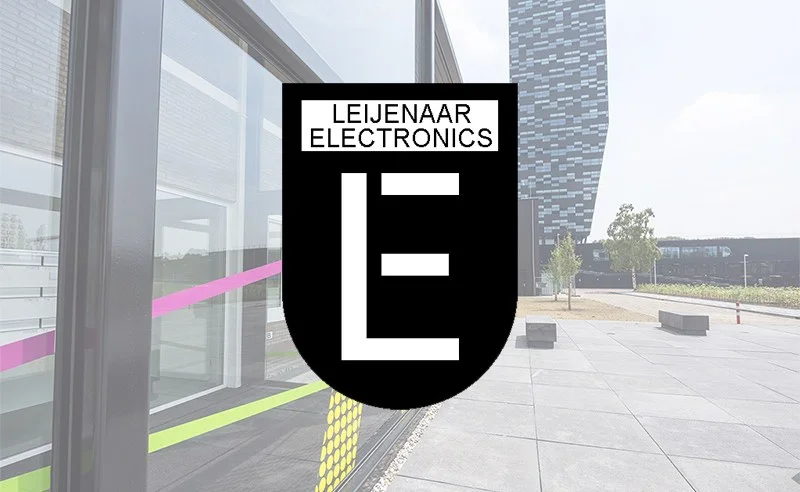Leijenaar Electronics has been around since 2007, but over the last year, William Leijenaar has been able to fully focus on his own business. “I saw an opportunity, and I took on the challenge.” With Leijenaar Electronics, William researches and designs electronic systems.
Before focussing on his own business, William worked for NXP Semiconductors and later Ampleon Netherlands B.V. When he lost his job due to a reorganisation at Ampleon, he decided to set up his own business. “With help from Ampleon, I was able to bridge the time from leaving my job to starting my business. To overlook all the aspects of starting my own business, I got help from Thaeles, and with use off the UWV startregeling, I was able to reduce the financial burden on my private situation during the first six months.”
With Leijenaar Electronics, William researches and designs complete electronic systems on customers’ requests, with a focus on the Radio Frequency (RF) area. These systems are used in all kinds of industries, from small CO2 sensors sending data towards satellites in space, to parts for the satellites. “I work with high frequency, digital electronics, mechanical design work, thermal electronics across different projects.”
Quick start
With a lot of experience and a lot of contacts in the industry, William concluded that starting his business would not be a problem. “I started Leijenaar Electronics in 2007 to elevate my hobby to a more professional level. I worked at it after work. I could raise the technical level, but I was lacking the flexibility and status of a full-time company. When I had to leave Ampleon, I had the chance to make it into something bigger.”
William offers a wide range of experiences to his customers, and he runs research projects. “They have a certain idea and want to know if it is feasible. I don’t mind working with loosely defined instructions, because I really like these kinds of pioneering projects. Firstly, trying if something works, then further developing it and seeing improvement. If needed, making a test system to validate all systems, and make a prototype for the customer to play with it. In the end, when my research is concluded, I send the complete documentation to my customer, which allows them to start production.”
Leijenaar Electronics also works with more defined commissions. “There are many organisations with specific demands and timelines for their systems. In that case, I make sure to build a system that meets all the requirements within the agreed time.”
Olympic business
For William, working for Leijenaar Electronics is like competing in the Olympics. “Look at speed skaters, for example. Every time, they want to raise the bar and go faster and be better. When they reach the top, they try other sports to learn different things. That is how I look at my company. I like the work because of the challenges. I want to raise the bar every time, and do new things to broaden my knowledge.”
For example, William has done some projects for space satellites in the past. “Electronics for use in space are really interesting, and I would love to do some more in this area. In space, you have to work with extreme circumstances. High vacuum, high and low temperatures, vibrations during launch, to name a few. Those are challenges I like to work with. At the moment, there are five satellites in space that use my electronics.”
Broad perspectives
But William is not just interested in the aerospace industry. “I’m always looking for new challenges, and the next logical step is to look at new customers in other industries. Like the medical sector, the energy sector or maybe education. Nowadays, everyone uses electronics and I can develop systems for a lot of different purposes. If a medical business is looking for an electronic solution, I would be able to help.”
Concerning his company, William has set his goals too. “When I worked for NXP Semiconductors and later Ampleon, my work was narrowly focussed at the RF design. Doing any mechanical design work, dealing with financial issues, or discussing new projects with customers was not in the scope of my work. As an entrepreneur, I wanted to do more. Contact with clients, visit suppliers, deal with financial issues and experience the smile on the customers face when the project is successfully realized. In my first year, I already succeeded in doing so, which gives me lot of energy and confirms that I made the right choice.”
Connections at Novio Tech Campus
Because William worked for NXP Semiconductors and Ampleon Netherlands B.V., he knew the Novio Tech Campus quite well. “When you look for customers in the electronics field, you have to look here. So, when I started my business, the first thing I did was look for vacant office space at the Novio Tech Campus. At that time I was lucky that a few spaces were available in Building A, which is right across from the NXP and Ampleon building.”
“Being on campus immediately paid off. I now do projects for a few other companies that are also located on the campus. As an example, one of my neighbours was looking for an experienced partner to develop a system for them. It all started with a chat at the coffee machine and now we’re doing a project together.” According to William, cooperation is very easy at the campus. “Not only because many of the people I work with are former colleagues, but also because everyone is nearby. You can ask questions or tackle a problem right away by simply walking over and discussed it face-to-face rather than writing emails or try to catch someone by phone.”
William also notices that the name Novio Tech Campus helps with international customers. “I have a few customers in the United States and Germany that are taking me more serious now. It gives a better impression than with my home address in the past.”

